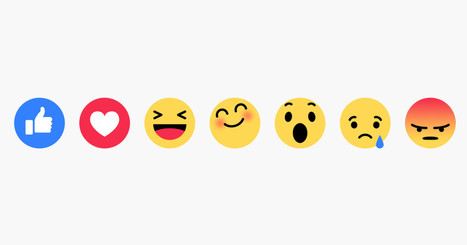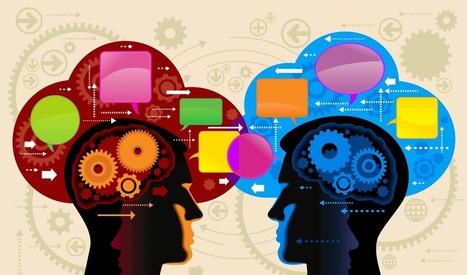Say it with a smiley.
Adam Mosseri, Facebook’s director of product, tells TechCrunch that Reactions will be tested in only two markets for now, Spain and Ireland, countries whose friend networks tend not to extend beyond national borders, making them ideal “closed test groups.” The biggest caveat: Facebook says it still needs to figure out whether it wants to tweak these empathetic emoji. “We’ll use the feedback from this to improve the feature and hope to roll it out to everyone soon,” Cox continued.
The other consideration, of course, is that a strict “dislike” button would be a bad thing for brands, a camp Facebook would rather not expose to hostilities. In fact, the new range of emotions could offer more than just defensive benefits. They let Facebook quantify your feelings with even more granularity, which could in turn help Facebook serve up ads that are even more well-suited to you. In the end, it’s all just data.
Gust MEES: Looks GOOD to me as it is expressing emotions <===> Empathy <===> ;)
Learn more:
http://www.scoop.it/t/21st-century-learning-and-teaching/?tag=Empathy



 Your new post is loading...
Your new post is loading...









Los usuarios ya llevan muchos años pidiendo una opción de "no me gusta" al lado del famoso "me gusta" en Facebook. La razón de esta demanda no es para informar negativamente de que un contenido o foto no es del agrado del usuario, sino para mostrar cierta empatía a la hora de leer una información devastadora.
Aun con todo, no se ha conseguido una opción de "dislike"o "no me gusta" tal cual. Los profesionales de Facebook han decidido incorporar 7 emociones diferentes en las que el usuario puede decidir la más acertada según su estado de ánimo en el momento de visualizar la foto o leer la información. El motivo por el cual no se ha añadido una simple opción de "dislike" es puramente empresarial. Se ha estudiado que un botón de "no me gusta" afectaría a las ventas de productos publicitados en esta red social.